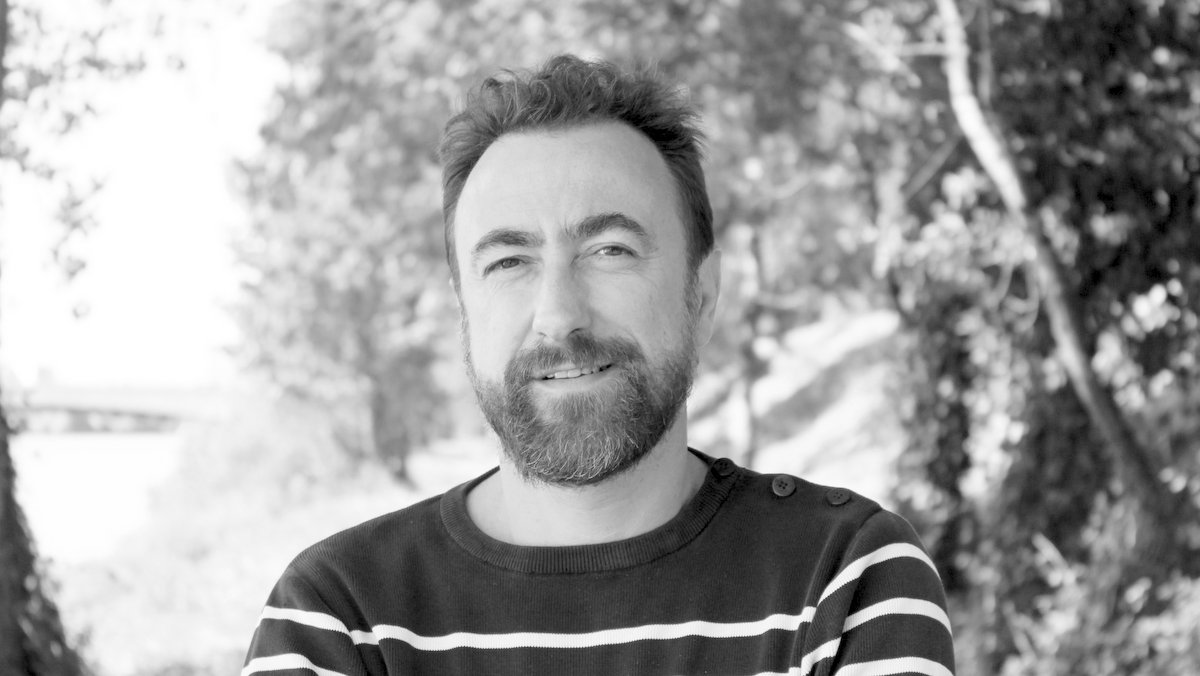
Yves Piat is a French writer and filmmaker, best known for his short film Nefta Football Club for which he received critical acclaim and was nominated for the 2020 Academy Award for Best Live Action Short Film and 2020 César Award for Best Short Film.
indieactivity: Give a background of your personal experience with the story, writing and production?
Yves Piat (FL): Firstly, it is a personal experience from my childhood, I was 13 or 14, I would systematically sneak out to forbidden places, with torchlights, with my friend. One day, we found out things we thought to be drug material (twisted spoon, a camping stove and thousand of little plastic bags full of white powder).
We decided to take all of this on our motorcycle and finally dumped it on the water without really thinking about what we were doing. Our decision may have cost someone’s life or something important. It’s a story I kept for more than 30 years now. This is how it got started. I wanted the movie to take place at the border between Morocco and Algeria because I was amazed by the fantastic landscapes I saw there and imagined that the desert would play a great part in the story.
Border zones are often dangerous, a no man’s land, going from a state to another literally. Regarding the story about the donkey and the walkman, it’s a true story, even smugglers record whistles and not music as presented in the movie. I found funny to bring this misunderstanding with the music.
Nefta Football Club – Oscar®-Nominated Live Action Short Film
For the football field, the idea came to me after I saw all these kids playing football all along my trip, from North to South Morocco. during the preparation of the film, it was planned to shoot in Morocco and finally, for budgetary reasons, the production had decided, a month before the shooting, to make this film in Tunisia.
First of all, I was very worried because I had prepared everything for in Morocco, but fortunately, we were lucky, because while we were shooting in the Tunisian desert, the Moroccan desert was filled with snow. A few weeks before shooting, I learned that we would only have 6 days of shooting instead of 8… I had to rewrite night scenes to extend the days of filming but it adds a lot to the atmosphere of the film.
On another day, Dali even managed to disappear from the set while we were looking at him. Five minutes later, he was coming back on a bike he probably found in the village near the shooting place. There are about dozens of stories, but it is too bad that there is no way to show all these things.
Did you start writing with a cast in mind?
Yves Piat (FL): I didn’t really have any idea of the casting when I wrote the script. I wanted to work with “non-professional” actors, we eventually found two or three weeks before the shooting started.
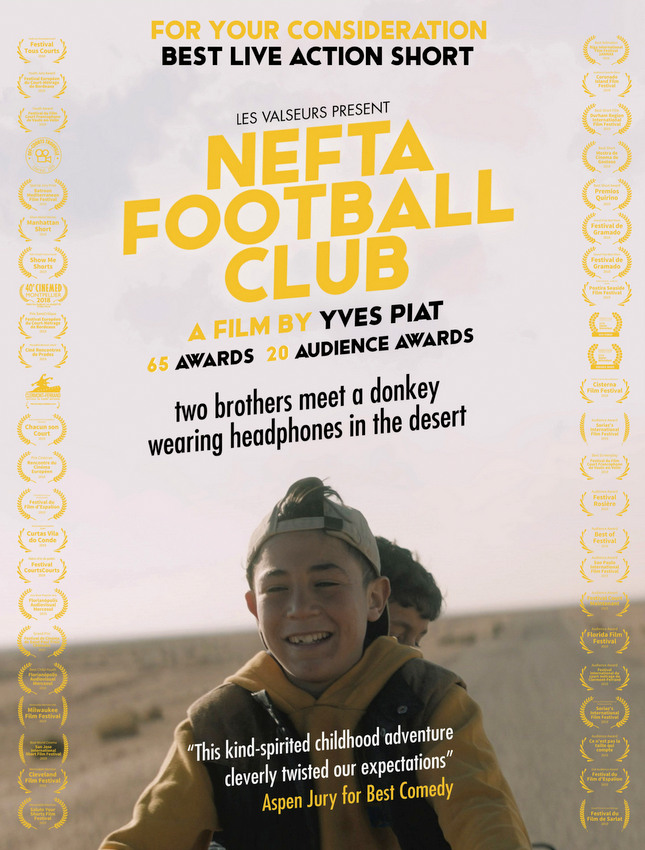
How long did you take to complete the script? (Do you have a writing process)?
Yves Piat (FL): It is hard to say how long took the writing of the script too. We worked on maybe15 different versions of the scenario with my producers.
When the project started to take shape, I started the writing process by travelling to the locations – where the action takes place – and I compare my ideas with reality, most of the time though, reality catches me up and brings me down.
Then I came back with other ideas, more realistic ideas. It’s quite a disturbing process, but essential, according to me, to bring life to your narrative structure.
What was the first project out of the gate?
Yves Piat (FL): Nefta FC is my first “foreign” project, but I already knew North Africa and especially the Morocco desert pretty well.
During production, what scene (that made the cut) was the hardest to shoot?
Yves Piat (FL): There are many of them but one of the hardest was to shoot the children discovering the drug on the donkey. We chose a steep-sided location behind a hill. It was a complicated scene to direct between the children and an animal…The control truck got lost in the desert on its way to us and we had to wait for 2 hours to quickly shoot the scene before the sun vanished.
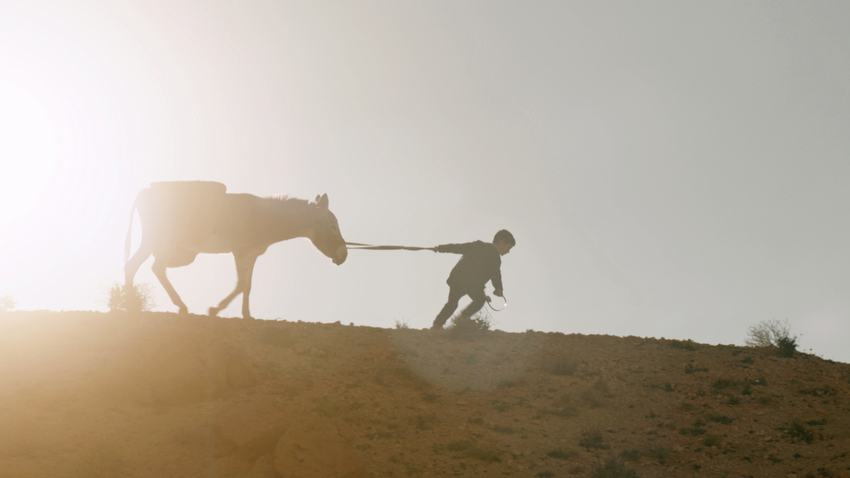
What works better in this latest production that mightn’t have worked so well in the last one you did?
FL: First of all, it is the trust connection established with my producers and all the technical team. It’s also a “kind of magic” between preparation and improvisation.
It’s because I scouted so many locations that I managed to adapt to the multiple unexpected issues on the field. I was also lucky to meet Valentin Vignet, my director of photography who is a real Jedi light fighter, who works with that kind of light, as my first assistant Stephane Chaput, who also used to work in this part of the world. I had a dream team!
You produced and directed the film, what measure of input did it take to don these hats?
FL: I didn’t produce the film. I wrote it and I directed it, which is fair enough. It’s comfy to rely on a talented production and distribution team such as The Valseurs. I produced a film once, but I think there is a conflict between creation and production, I prefer to stay in my role.
Is there anything about the independent filmmaking business you still struggle with?
FL: It’s obviously a permanent struggle to find money and it sometimes takes 10 years to produce a movie. It’s a necessary preparation process to make sure your project grows into something realistic, but it’s also a big deal to keep a high level of energy, ideas, and partners on such a long period of time.
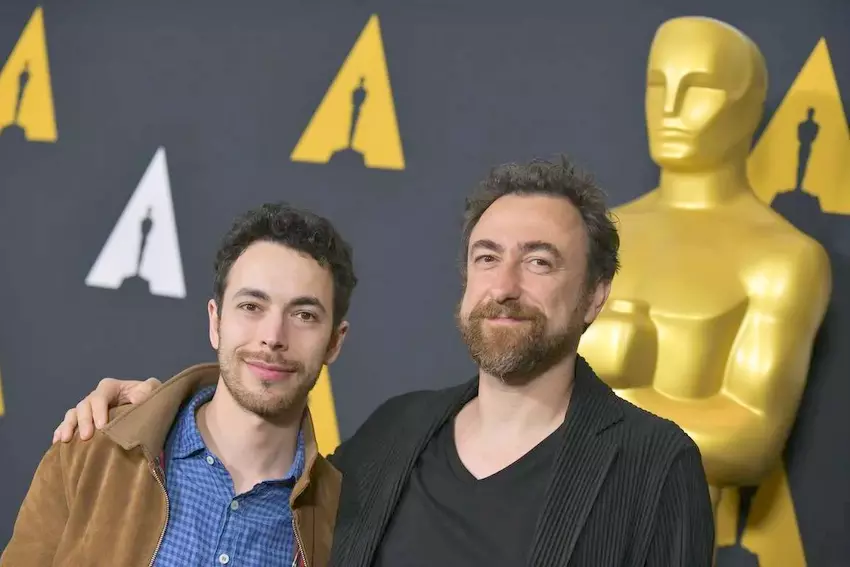
Where do you think your strengths lie as a filmmaker?
FL: When I write, I already have plans, situations, and images in my head. When I write, staging and directing ideas start to appear in my mind. I like to design staging since it’s my schooling background. It’s also a handy way to communicate what I want with the technical team.
Let’s talk finance, How did you finance the film?
FL: A part of the financial production came from the french TV channel France 2 following a prize we received for a festival in Angers. In addition, we got a little support from the national center of cinema, and the last financing part came from the Pays de la Loire region. I feel very grateful to these 3 financers. It’s hard to raise money in France for a short film shot abroad. We would have needed twice the money we actually received.
How much did you go over budget? How did you manage it?
FL: It’s a question I couldn’t answer precisely. The production team from Les Valseurs was in charge and they are much more indicated to answer the question than I am.
What do you hope audiences get from your film?
FL: I’m really happy that audiences have seen the film, from all over the world! We received so many prizes, we are even qualified for the 2020 Oscar Ceremony, which is pretty amazing! Clermont-Ferrand, Aspen or Palm Springs, it’s the same warm welcome from the people. I hope this is going to last a bit…
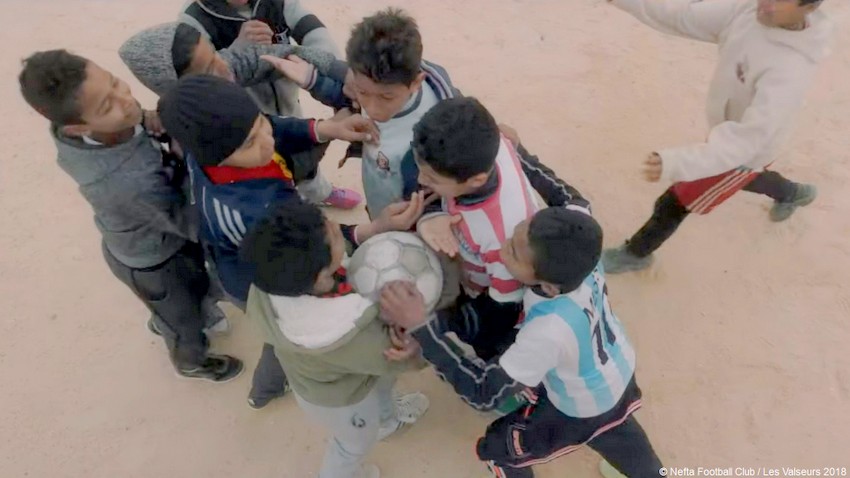
What else have you got in the works?
FL: I am currently working on a feature film taking place in Jerusalem. A Palestinian governor is choking and suffocating (to death) while eating sheep, few days before a peace agreement is approved. The forensics discover a bullet in the man’s aorta. It is the same sheep that a few years ago ate an Israeli salad and got shot for this, a bullet in its shoulder.
The question is, does the governor dies because he ate Palestinian sheep or it is due to the Israeli bullet? The American emissary in charge of the success of this peace agreement has to handle the situation with extreme caution in order to find the people or person responsible without disclosing the situation.
Tell us what you think of the interview with Yves Piat. What do you think of it? What ideas did you get? Do you have any suggestions? Or did it help you? Let’s have your comments below and/or on Facebook or Twitter.
Follow Yves Piat on Social Media
Website
IMDb
Facebook
Vimeo
Apple TV picks up “Dismissed” by Aysha Scott After it Hit a Million Views
Single mother entrepreneur from South-East London, built up an empire from scratch.
MOEDER Oscar® Qualified Drama Based on MH17 Airline Disaster
OSCAR® Qualified MOEDER tells a story tragedy on the Ukrainian-Russian border
Nate & John Oscar® qualified Animation Short Directed by Jumai Yusuf
NATE & JOHN heartwarming animation short qualifies for the 97th Academy® Awards
Dreama Team by Chad Weber & Steve Vanderheide Acquired by Freestyle for November Release
Feature Documentary Dreama Walton Sets Digital Debut for Global VOD Platforms and on DVD on Nov 1, 2024
LGBTQ+ Film, “Muscat” by Philippe Grenier Qualified the Oscars®
Muscat is an audacious exploration of a young boy confronted with the discovery of his identity
Joy of Horses by Ava Justin acquired by BMG Global
Joy of Horses by Ava Justin, now available across digital streaming platforms
Vanessa Valente Talks Reality TV, Online Bullying and Healing on Sisters Uncensored Podcast
The Temptation Island’s reality TV star joins Sisters Uncensored Podcast October 16th
Oscar® qualifying Sunflower: A story of resilience in a war-torn country
Mateusz Balcerek’s Oscar® qualifying Sunflower is an extraordinary story of resilience in a war-torn country









